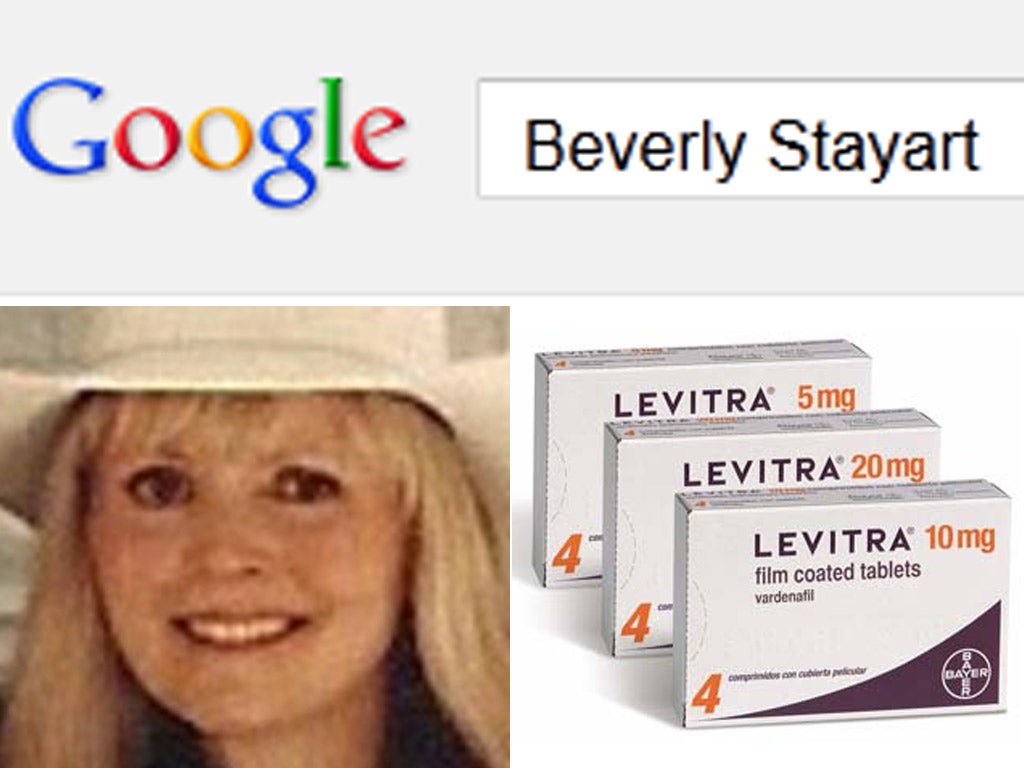Cyber culture: The perils of Googling yourself

Your support helps us to tell the story
From reproductive rights to climate change to Big Tech, The Independent is on the ground when the story is developing. Whether it's investigating the financials of Elon Musk's pro-Trump PAC or producing our latest documentary, 'The A Word', which shines a light on the American women fighting for reproductive rights, we know how important it is to parse out the facts from the messaging.
At such a critical moment in US history, we need reporters on the ground. Your donation allows us to keep sending journalists to speak to both sides of the story.
The Independent is trusted by Americans across the entire political spectrum. And unlike many other quality news outlets, we choose not to lock Americans out of our reporting and analysis with paywalls. We believe quality journalism should be available to everyone, paid for by those who can afford it.
Your support makes all the difference."Have you ever tried Googling your own name?" asks fictional Tory MP Peter Mannion in an episode of The Thick Of It. "It's like opening the door to a room where everyone tells you how shit you are."
American businesswoman Beverly Stayart has spent the last five years searching the internet for her own name and she's been as unimpressed as Peter Mannion. Rather than highlight, say, her self-confessed passion for the environment, or her enthusiastic attempts at poetry, the algorithms used by Google and Yahoo! have randomly juxtaposed her name with a number of drugs used to treat sexual dysfunction, including Cialis and Levitra. Now, most of us have only stumbled across the words Cialis and Levitra in the context of spam and would recognise this phenomenon as just a quirk of the internet, an unfortunate sequence of words that happen to vaguely associate Ms Stayart with erectile problems. But she felt very strongly that her name had been besmirched, and decided to flex some legal muscle.
Her past four years of litigation haven't been very successful. A case against Yahoo! was rejected in 2009, and again on appeal in 2010, the judge ruling that Ms Stayart's good name wasn't a protectable commercial interest. A similar case against Google was dismissed on its lack of overall merit – not least that it couldn't be demonstrated that Google had ever made use of her name, let alone derived any commercial benefit from it. As reports on these cases mounted up online, you could begin to observe an almost perfect example of the so-called Streisand effect. Named after the widespread online sharing of a photo of Barbra Streisand's Malibu residence which she'd specifically attempted to suppress, this particular manifestation of the Streisand effect succeeded in not only associating poor Beverley Stayart with Cialis and Levitra for evermore, but, perhaps more damagingly, demonstrated her unenviable talent for feeble litigation.
Had she consulted an SEO (search engine optimisation) expert back in 2008 instead of a lawyer, she'd have probably been advised to start slinging more stuff online to push any spurious and incidental search results further down the rankings. And she's clearly given that a go; on a page that repeats her name so often that it sounds like a feverish incantation, it reveals that her favourite composition is "Canon in D Major by the 17th Century German composer Johann Pachelbel” amongst many, many other things. But Stayart's failure to appreciate the chaotic nature of online information and her inability to shrug off a few coincidental associations back in 2008 is a lesson to us all: ignore it and it'll probably go away; challenge it and it'll only get worse. Type her name into Google today, the first automatic suggestion is still "bev stayart levitra”. Last week another court ruled on the misappropriation of her name by Google in that auto-suggest box. Stayart lost.
Join our commenting forum
Join thought-provoking conversations, follow other Independent readers and see their replies
Comments